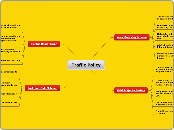Traffic Policy
Area Licensing Scheme
The ALS was introduced in 1975 and was successful in controlling the flow of traffic in Singapore.
Motorists have to pay for the use of certain roads, especially the Central Business District.
Motorists had to buy ALS labels to enter the restricted zone and gantries were set up to monitor this.
A lot of costs were involved as this systm was labour-intensive.
However, it was very successful in decreasing the number of vehicles entering the CBD during peak hours.
Vehicle Quota System
The VQS was introduced when there was a sharp increase in car ownership as peple became more afflyent in the 1990s.
It was a way to control the number of new vehicle and it also means that cars over 10 years old were taken off the roads.
Using the COE system, a specific number of new cars are put on the roads based on the quota set by the LTA
Car buyers must bid for the COE before they can purchase a car.
The COE only entitles the motorist to own the car for 10 years.
Electric Road Pricing
The ERP has replaced the ALS in 1998 as although the ALS was effective in controlling traffic flow, it was not cost-effective.
So, the ERP uses up-to-date technology to enable the transport system to stay relevant with the times.
Tehnology is used to monitor and regulate traffic flow
Motorists have to pay to use certain roads, expressways and driving into the city at certain times of the day.
In this way, peak hour traffic has been successfully controlled
Park-and-Ride Scheme
The Park-and-Ride Scheme was also introduced to control the traffic flor in the CBD.
Under this scheme, motorists could park their vehicles at specific car parks which were outside the city area.
From there car parks, they could use public transport to enter city area.
This meant fewer vehicles would enter the CBD.
However, it was not successful.
